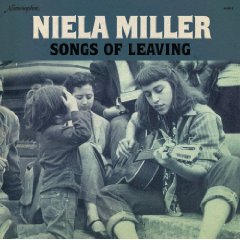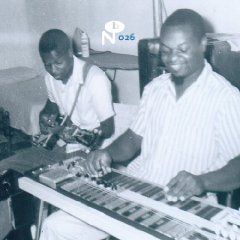
new releases from the ever interesting folk at the Numero Group;
When Moe Asch died in 1986 he left behind a wealth of recordings to be dissected by historians, junior ethnomusicologists, and casual music buyers alike. From The Pygmies Of The Ituri Forest to the facist killing strums of Woody Guthrie, for 50 years his Folkways label represented the sounds of how people lived, celebrated, and worshipped. Moe Asch’s death took more than just a man; it killed an entire approach to documenting vernacular music. From our humble beginnings in a third floor walk up in Chicago, The Numero Group’s approach to documenting popular music has been inspired by the work of Moe Asch. It is with great pleasure that we announce two new directions for our label, both taken directly from his playbook.
The first is Local Customs, a series of records dedicated to opening the vaults of the Moe acolytes who traversed America’s landscape in the 60s and 70s. These entrepreneurs, in nowhere towns like Ecorse, MI, Rockford, IL, and Beaumont, TX, documented the recording bugs of their fellow citizens, and issued their songs on tiny labels and in even tinier pressings. If Harry Smith’s Anthology Of American Folk Music is the macro outcome of years spent sifting through 78s and acetates, Local Customs is the micro look at the woodsheds, basements, and living rooms where these records were made. The second is Numerophon, an LP-only imprint focused on the rediscovery of primitive American and ethnic recordings. Impeccably designed, housed in thick jackets, and pressed on durable 150 gram vinyl, you’ll know a Numerophon album when you see it, the same way you knew Folkways after that first thrift store find.
Without further ado, the albums:

Local Customs: Downriver Revival
Between 1967 and 1981 Detroit’s downriver neighbor Ecorse, MI had its very own Moe Asch. Set up in a basement on 18th Avenue, Felton Williams chronicled the musical lives of Ecorse’s citizens and issued them on the Solid Rock, Compose, and Revival labels. Compiled here are 24 of Williams’ most fascinating recordings, covering gospel, doo wop, soul, garage-punk, northern, jazz, and funk. Also included is a DVD of the over 200 sound recordings pulled from his archives and a 30 minute featurette on the making of Downriver Revival. Available 3/3/09 at finer record stores around the world.
Niela Miller: Songs Of Leaving
Culled from a warped acetate cut at Variety Recording Service in 1962, Songs Of Leaving is the complete songbook of New York folkie Niela Miller. Something of a Bleeker MacDougal scenester, Miller picked up the guitar after an encounter with Eric Weissberg, lent her Martin to Pete Seeger, and even had Dave Van Ronk cover “Mean World Blues.” Her real claim to fame, however, is writing “Baby Don’t Go To Town,” a song that boyfriend Billy Roberts would steal and “rewrite” as “Hey Joe.” You’ve heard Hendrix, Love, the Byrds, the Creation, Wilson Pickett and hundreds others do it, now hear the original for the first time. Available on vinyl and MP3 since 2/10/09.